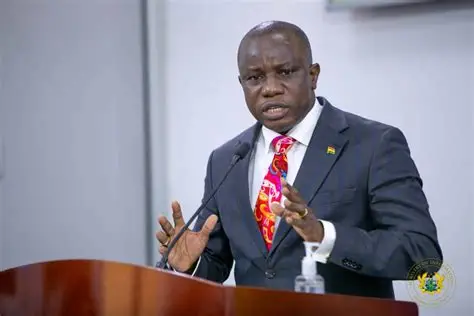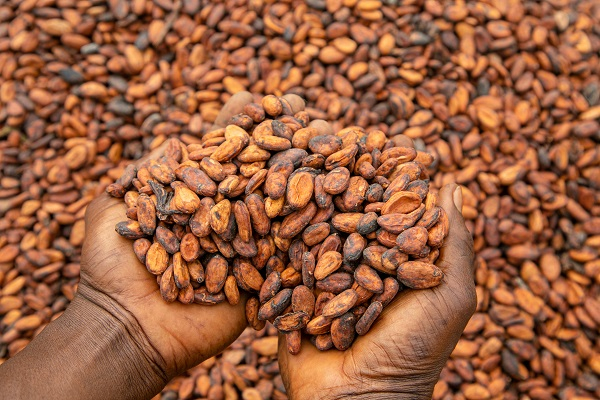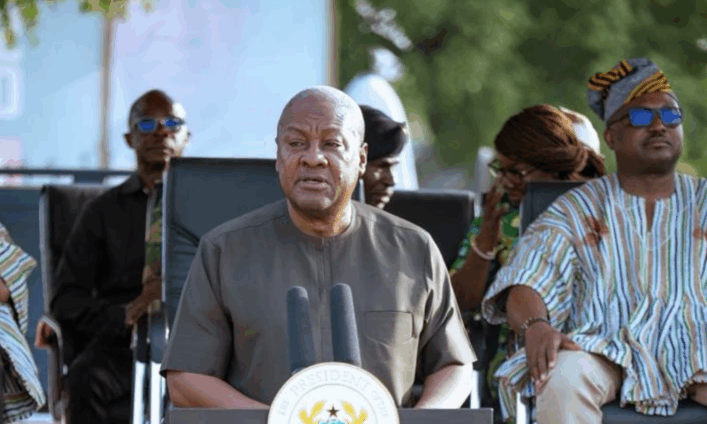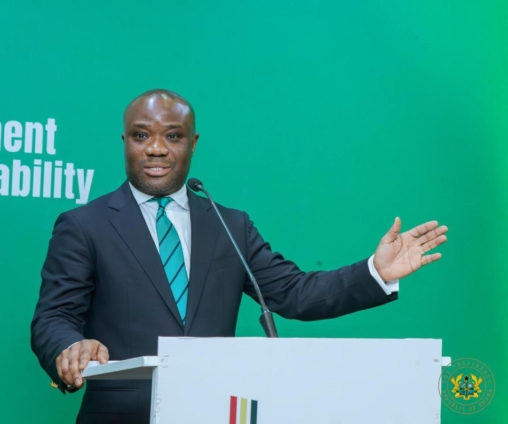Ghana's Fiscal Future: 2026 Budget Sparks Fierce Debate Among Leaders
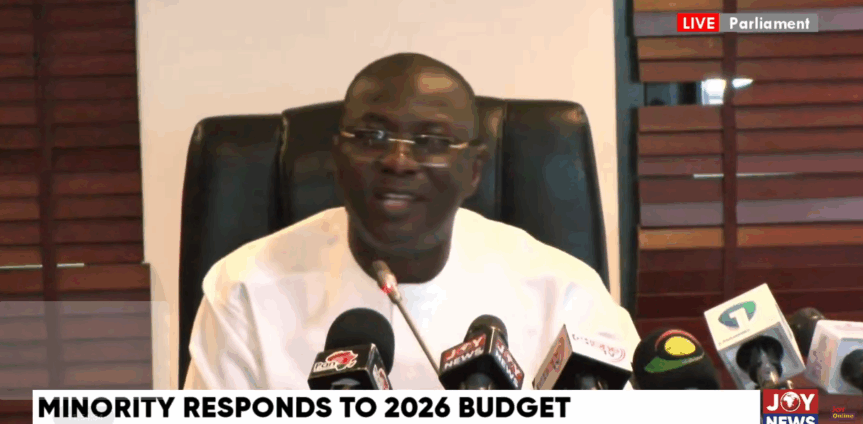
The 2026 Ghanaian Budget has ignited a fierce debate within Parliament, with the Minority Caucus vehemently opposing its proposals while the government and its supporters champion it as a beacon of hope and transformation. The Minority in Parliament has branded the budget as “growthless, jobless, and minimalist,” arguing that it utterly fails to address Ghana’s pressing economic challenges. Former Finance Minister and MP, Amin Adam, speaking on behalf of the caucus, criticized the budget for its lack of substance, describing it as mere “cosmetic rhetoric” from what he termed a “crawling government.” He asserted that Ghana requires a budget focused on revenue realism, productive investment, fiscal credibility, and private sector-led job creation, rather than the current structure which shows no significant shift towards job creation or economic transformation.
The Minority highlighted what they perceive as an “illusion of fiscal discipline,” accusing the government of systematically under-executing growth-enhancing public investments. While Parliament approved capital spending equivalent to 1.5% of GDP, only about 0.5% was implemented year-to-date, resulting in a staggering US$1.1 billion in foregone public investment. This shortfall, attributed to cash rationing, auction failures, and mounting debt service pressures, is estimated to have cut effective demand by 0.514% of GDP, impacted GDP by approximately US$469 million, caused US$75 million in revenue loss, and forgone 0.1 percentage point of annual growth. They argued that such “fiscal deception” directly leads to uncreated jobs, weaker small and medium-sized enterprises (SMEs), and slower future tax growth, by prioritizing “accounting aesthetics over economic substance.”
Further critiques from the Minority focused on the nature of Ghana’s economic growth, which they observed as services-heavy (led by ICT, finance, and trade) while critical productive sectors like construction and manufacturing lag. Flagship programs touted by the government, such as the “24-hour economy” and the “Big Push,” were dismissed as confusing, lacking clear implementation, and suffering from token allocations that fall far short of their ambitious goals. For instance, the 24-hour economy programme, estimated to cost US$4 billion, received only GHS90-GHS110 million in the budget. Similarly, claims of GHS63 billion in road contracts under the Big Push were challenged, as the total allocation for 2025 and 2026 combined amounted to GHS43 billion, suggesting a fabrication of success stories. The Minority warned that high domestic borrowing would crowd out private sector credit, maintain high interest rates, and stifle job creation, contradicting the government’s stated ambitions.
Concerns were also raised about a “catastrophic collapse of market confidence,” evidenced by an unprecedented failure rate of over 55% in government security auctions (25 out of 45 failed in 2025), and a decline in the GSE Composite Index during the budget presentation week. This, they argued, reflects active rejection of government paper by sophisticated investors. The Bank of Ghana’s approach to currency management was labeled an “expensive and unsustainable illusion of currency stability.” The Minority claimed that massive forex interventions, estimated at US$8 billion since January 2025, primarily drew from reserves accumulated under the previous NPP administration and relied on the NPP’s Gold Purchase Programme. They pointed out that these interventions achieved only modest cedi gains (from GHS14 in January 2025 to GHS11, while the Minister misleadingly compared it to GHS16 from November 2024), masking underlying structural weaknesses.
The impact on ordinary Ghanaians was also a central point of contention. Workers were deemed to have been “robbed” by a mere 9% base pay increase, which failed to restore lost purchasing power amid persistently elevated prices for essential goods and services. Revenue shortfalls and the “sweeping of accounts” from various departments and agencies, including the District Assemblies Common Fund, have allegedly left ministries struggling for basic resources. The Minority further contested the government’s claims of reduced national debt distress, attributing it primarily to debt restructuring efforts initiated and substantially completed by the previous NPP government in 2024. They also accused the current administration of poorly renegotiating power contracts and the Lithium Agreement, claiming these deals result in significantly less benefit for Ghana compared to terms secured by the NPP.
In stark contrast, Finance Minister Dr. Cassiel Ato Forson, presenting the 2026 Budget in Parliament, described it as “a message of hope” for every Ghanaian and a “defining moment” for the nation’s economic journey. Under the theme “Resetting for Growth, Jobs and Economic Transformation,” the Minister and supporters like Ernest De-Graft Egyir portrayed the plan as grounded yet forward-leaning, emphasizing strengthened fiscal responsibility, boosting local industries, modernizing agriculture, and expanding youth employment pathways. They highlighted measures to stabilize the cedi, expand a fair and efficient tax system, and support businesses, aiming to restore confidence and opportunity. Dr. Forson declared, “Ghana is rising — stronger, fairer, and unstoppable,” under President John Dramani Mahama’s leadership.
Beyond the budget, broader national issues also captured public attention. Newsfile reported on the investigation into the August 6 crash of the Z-9 military helicopter, which concluded that systemic fleet weaknesses, including missing terrain-awareness systems and insufficient weather briefings, rather than pilot error, caused a sudden loss of altitude. This led to calls from the Minority for full public disclosure of the findings. The vetting of Justice Paul Baffoe-Bonnie as Chief Justice became a “flashpoint,” with the Minority caucus walking out of the Appointments Committee, questioning judicial integrity amid ongoing cases involving the outgoing Chief Justice. A tragic stampede at El-Wak Sports Stadium during a Ghana Armed Forces recruitment exercise, which claimed six lives and injured many, underscored “youth urgency, institutional failure, and national security risk.”
The Minority concluded their critique by demanding genuine economic leadership, real fiscal discipline, and a government that delivers results rather than excuses. They warned that without addressing fundamental risks, broadening the revenue base, lengthening debt maturities, and transparently executing approved budgets, Ghana faces continued economic stagnation and “fiscal deception.” They reiterated their description of the 2026 budget as the “Galamsey budget,” which is “Growthless, Jobless and Minimalist,” containing only “cosmetic rhetorics presented by a crawling government.”
You may also like...
Explosive Racism Claims Rock Football: Ex-Napoli Chief Slams Osimhen's Allegations

Former Napoli sporting director Mauro Meluso has vehemently denied racism accusations made by Victor Osimhen, who claime...
Chelsea Forges Groundbreaking AI Partnership: IFS Becomes Shirt Sponsor!

Chelsea Football Club has secured Artificial Intelligence firm IFS as its new front-of-shirt sponsor for the remainder o...
Oscar Shockwave: Underseen Documentary Stuns With 'Baffling' Nomination!

This year's Academy Awards saw an unexpected turn with the documentary <i>Viva Verdi!</i> receiving a nomination for Bes...
The Batman Sequel Awakens: Robert Pattinson's Long-Awaited Return is On!
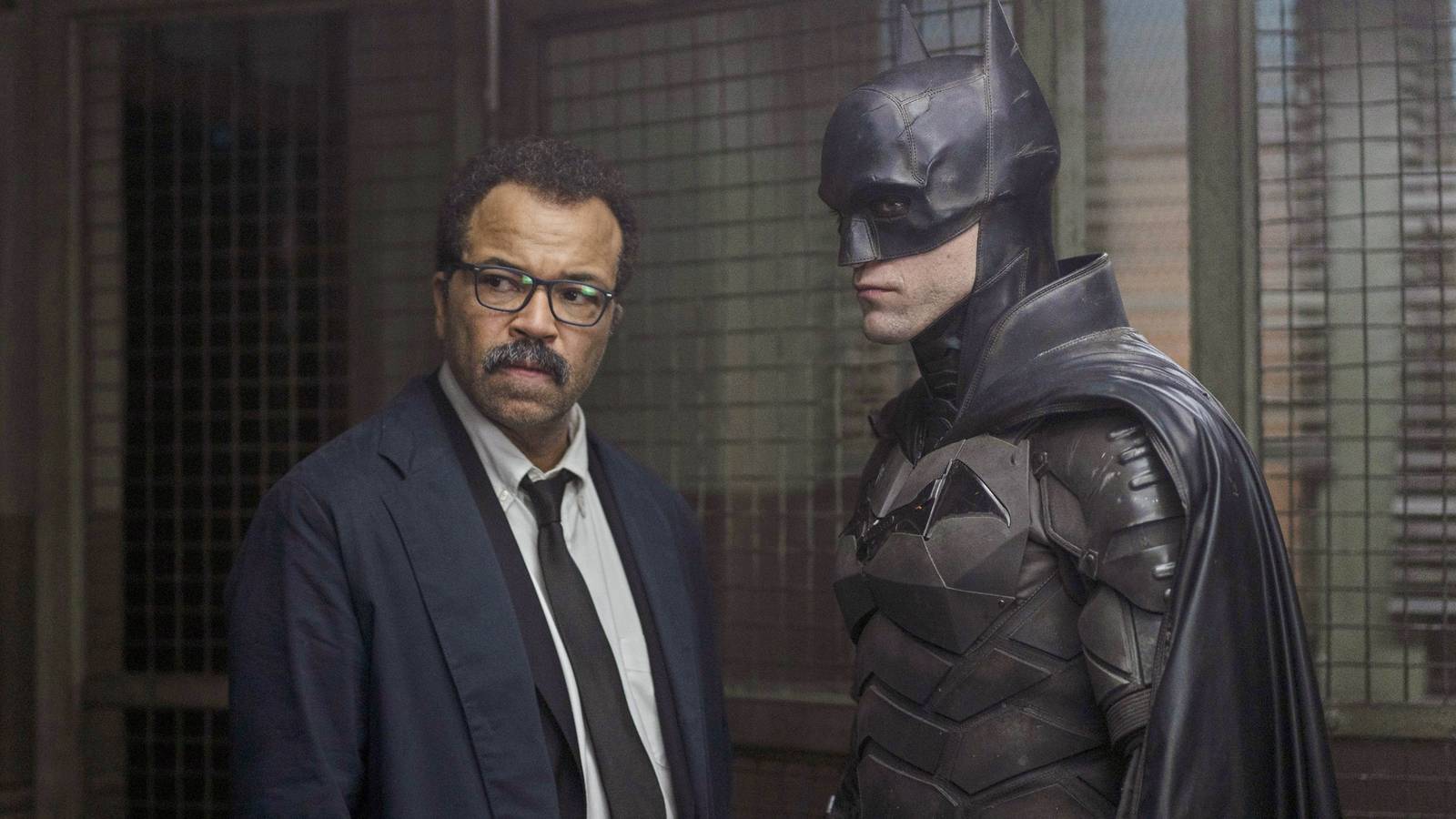
Robert Pattinson's take on Batman continues to captivate audiences, building on a rich history of portrayals. After the ...
From Asphalt to Anthems: Atlus's Unlikely Journey to Music Stardom, Inspiring Millions

Singer-songwriter Atlus has swiftly risen from driving semi-trucks to becoming a signed artist with a Platinum single. H...
Heartbreak & Healing: Lil Jon's Emotional Farewell to Son Nathan Shakes the Music World

Crunk music icon Lil Jon is grieving the profound loss of his 27-year-old son, Nathan Smith, known professionally as DJ ...
Directors Vow Bolder, Bigger 'KPop Demon Hunters' Netflix Sequel

Directors Maggie Kang and Chris Appelhans discuss the phenomenal success of Netflix's "KPop Demon Hunters," including it...
From Addiction to Astonishing Health: Couple Sheds 40 Stone After Extreme Diet Change!

South African couple Dawid and Rose-Mari Lombard have achieved a remarkable combined weight loss of 40 stone, transformi...
